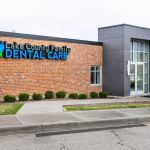How to Prevent Gum Disease and Maintain Healthy Gums
Gum disease is something most of us don’t think about until it’s too late. I used to be one of those people who ignored my gums, thinking they were fine as long as I brushed my teeth. However, after a routine dental check-up, I was shocked to learn that I was in the early stages of gingivitis, a mild form of gum disease. That experience really opened my eyes to how crucial it is to pay attention to gum health, not just tooth health.
The Importance of Gum Health
Many people focus only on their teeth, but healthy gums are just as important. Gum disease, or periodontal disease, can lead to tooth loss if left untreated. Gum disease begins with inflammation of the gums, often caused by a buildup of plaque—a sticky film of bacteria that forms on your teeth. If plaque isn’t removed, it can harden into tartar, which irritates the gums and can lead to gingivitis, and eventually, more severe forms of gum disease.
What really surprised me during my visit was how easy it is to prevent gum disease with a proper dental routine. It's not just about brushing and flossing—there are specific habits you can adopt to ensure your gums stay healthy.
1. Brush Your Teeth Correctly and Regularly
Brushing is one of the most fundamental steps in preventing gum disease. However, it's not just about how often you brush, but also how well you brush. I realized that I wasn’t brushing properly—I'd been brushing too quickly, missing some areas in the process. A good brushing technique involves brushing all surfaces of your teeth and gums at a 45-degree angle to your gum line, using gentle circular motions.
1.1 Choose the Right Toothbrush and Toothpaste
Choosing a toothbrush with soft bristles is important because hard bristles can damage your gums and enamel. I’ve found that an electric toothbrush can be especially effective, as it provides consistent pressure and timing. Make sure to use fluoride toothpaste, which not only helps prevent cavities but also fights gum disease by reducing plaque buildup.
2. Floss Daily to Remove Plaque Between Teeth
Flossing is one of the easiest and most effective ways to prevent gum disease. Plaque can easily accumulate between your teeth where a toothbrush can’t reach. I learned this the hard way, as I wasn’t flossing regularly before my dentist visit. Now, I make it a habit to floss every day. Flossing helps remove food particles and plaque, preventing gingivitis and other gum problems.
2.1 The Proper Flossing Technique
To floss properly, gently slide the floss between your teeth and curve it around the base of each tooth. Be careful not to snap the floss, as that can damage your gums. Make sure to floss between all of your teeth, including the back ones, which are often neglected.
3. Use Mouthwash to Reduce Plaque and Bacteria
After brushing and flossing, using a good antibacterial mouthwash can help reduce bacteria and plaque, providing an additional layer of protection for your gums. I always thought mouthwash was optional, but after incorporating it into my routine, I’ve noticed that my gums feel fresher, and I have fewer instances of irritation. Look for mouthwashes that are specifically formulated to combat gum disease, as they can be more effective in reducing plaque buildup and controlling gingivitis.
4. Maintain a Healthy Diet for Better Gum Health
What you eat plays a major role in your gum health. A diet rich in fruits, vegetables, and whole grains supports overall health, including your gums. I've also learned that vitamin C is especially important for gum health, as it helps repair tissue and strengthens the immune system. You don’t have to make drastic changes, but cutting back on sugary and acidic foods while incorporating more nutritious options can significantly benefit your gums.
4.1 Stay Hydrated
Drinking plenty of water throughout the day helps maintain a healthy flow of saliva, which naturally helps wash away food particles and bacteria in your mouth. Staying hydrated is an easy but often overlooked habit that can support gum health.
5. Quit Smoking for Healthier Gums
If you smoke, you're more likely to develop gum disease. Smoking impairs blood flow to your gums, making it harder for your body to fight off infections. Personally, quitting smoking has been one of the most impactful changes I've made for my gum health. After quitting, I noticed a significant reduction in gum irritation, and my dentist was pleased with my progress.
5.1 How Smoking Affects Your Gums
Smoking encourages plaque buildup and contributes to a dry mouth, both of which increase your risk of developing gum disease. Additionally, smoking weakens your immune system, making it harder for your gums to heal. If you're concerned about gum disease and smoke, quitting is one of the best steps you can take for your oral health.
6. Visit Your Dentist Regularly for Checkups
Regular dental visits are crucial for preventing gum disease. Even if you’re brushing and flossing well, a professional cleaning every six months is essential to remove any tartar that’s built up. I used to think routine dental visits were optional, but now I know they’re vital for catching any early signs of gum disease before it becomes a more serious issue.
6.1 What to Expect During a Dental Checkup
During your checkup, your dentist or hygienist will carefully examine your gums for signs of inflammation or recession. They’ll also clean your teeth to remove plaque and tartar, which helps prevent gum disease. If any issues are found, they can recommend early treatments to address the problem before it worsens.
7. Monitor Your Gum Health at Home
At home, it’s important to regularly monitor your gums for signs of trouble. Red, swollen, or bleeding gums are all indications that you may have gingivitis or gum disease. When I first noticed that my gums bled a bit after brushing, I realized it was a warning sign, and I immediately took steps to address the issue. If you notice any changes, it's best to consult your dentist right away.
By following these simple steps, I’ve been able to significantly improve my gum health and avoid gum disease. Maintaining good oral hygiene, eating a balanced diet, and seeing your dentist regularly are all key to preventing gum disease and ensuring your gums stay healthy for years to come.
For more tips on maintaining oral health or to find a local dentist who can help with gum care, visit Dentistry Toothtruth for expert recommendations.







 Kimberly Blaser, DDS5.0 (45 review)
Kimberly Blaser, DDS5.0 (45 review) Lake County Family Dental Care4.0 (449 review)
Lake County Family Dental Care4.0 (449 review) Small World Dental - Pediatric Dentist and Orthodontist4.0 (1469 review)
Small World Dental - Pediatric Dentist and Orthodontist4.0 (1469 review) Triangle Dentistry: Smith, Tart & Associates4.0 (329 review)
Triangle Dentistry: Smith, Tart & Associates4.0 (329 review) Palatine Dental Associates4.0 (334 review)
Palatine Dental Associates4.0 (334 review) Inverness Dental Care | Dr. Payal Trivedi5.0 (252 review)
Inverness Dental Care | Dr. Payal Trivedi5.0 (252 review) The Importance of Oral Health Education During Pregnancy for a Healthy Pregnancy
The Importance of Oral Health Education During Pregnancy for a Healthy Pregnancy Best Tips for Brushing Your Teeth Properly for Healthy Gums: Essential Techniques for Oral Health
Best Tips for Brushing Your Teeth Properly for Healthy Gums: Essential Techniques for Oral Health Why Skipping Dental Checkups Can Lead to Bigger Oral Health Problems
Why Skipping Dental Checkups Can Lead to Bigger Oral Health Problems Advantages of Porcelain Dental Restorations
Advantages of Porcelain Dental Restorations How Can Diabetes Cause Tooth and Gum Problems? Preventing and Managing Oral Health Issues
How Can Diabetes Cause Tooth and Gum Problems? Preventing and Managing Oral Health Issues Healthy Habits for Promoting Good Oral Health and Hygiene: Tips for a Healthy Smile
Healthy Habits for Promoting Good Oral Health and Hygiene: Tips for a Healthy Smile